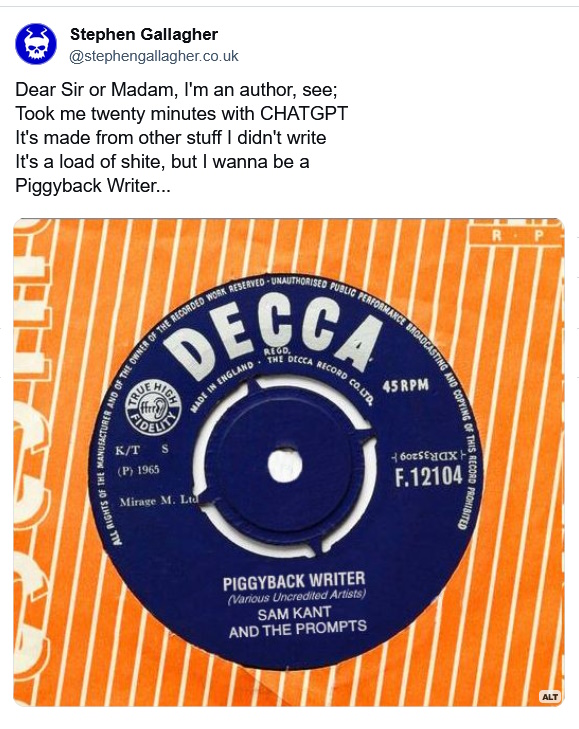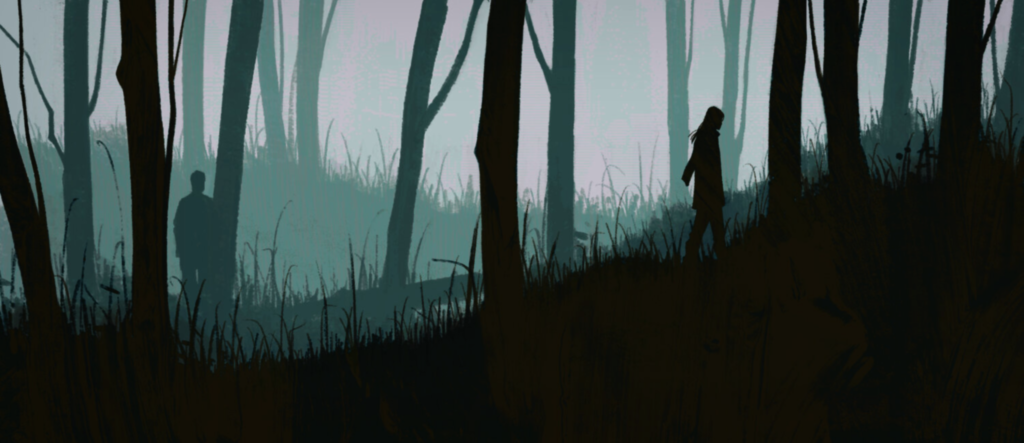Nick Clegg is claiming that asking artists for use permission would ‘kill’ the AI industry, and the general response of the creative community to that has been, ‘Fine’. But some overdue effort needs to be put into distinguishing between AI’s useful handling of complex data and the unauthorised lifting of copyrighted material.
I’ve recently been revisiting one of my earlier works for, as they say, a Thing. There was a time when I seemed able to hold all past projects in my head and if I needed to revise or adapt, I could just pick up where I left off. The bandwidth for that was exceeded somewhere in my thirties.
Now when I return to earlier work it’s like I’m reading someone else; not a stranger, exactly, more like a younger me who stayed behind. From notes and drafts and outlines I get the sense of someone who’s mined our joint memories and put in an unimaginable amount of work on them. It’s a strange feeling, satisfying and slightly intimidating.
It can also dismay the crap out of you, as you realise how much effort it will take to do anything like it again. You sailed in blindly, driven by the excitement of your new idea, and you kept at it until it reached its form. You powered through the climb without being aware of the mountain. Maybe you kept a daily page count, pacing yourself. But the thing brought its own energy.
And here’s what these last couple of days have shown me. The labour itself was transformative. Count maybe five percent for influences, fifteen or twenty for traditional story craft, a hefty whack for original research (going places, following professionals around, making notes), and the rest…
The rest, I now see, is a steadily-assembled mosaic of angles and observation from the author’s inner life. The author in this case being me, which made the scale of the detail easy to spot. Consciously or not, every writer worth their salt is reaching for something unique and true, from the genre crowd-pleaser to the Booker contender.
There are people out there without a creative bone in their body, asserting that generative AI replicates that process for a comparable outcome. As if the work is an unnecessary burden, a removable obstacle that stands between you and your genius. They argue that all art is the product of an artist’s influences and AI merely automates the labour involved.
They tell it what to do, then take credit for what it does. With due acknowledgement to Lennon and McCartney, I call them Piggyback Writers.
An AI-generated composition looks like real writing. There’s a reason for that, because it’s been scalped from real writing. Redressed, disguised, repurposed, uncredited.
“I just don’t know how you go around, asking everyone first,” Clegg says. “I just don’t see how that would work.”
Well, look to the organisations already in place. The Authors’ Lending and Copyright Society, for one. DACS for art. PRS for music.
If only they could be given some kind of technology to gather and process such a volume of data.

